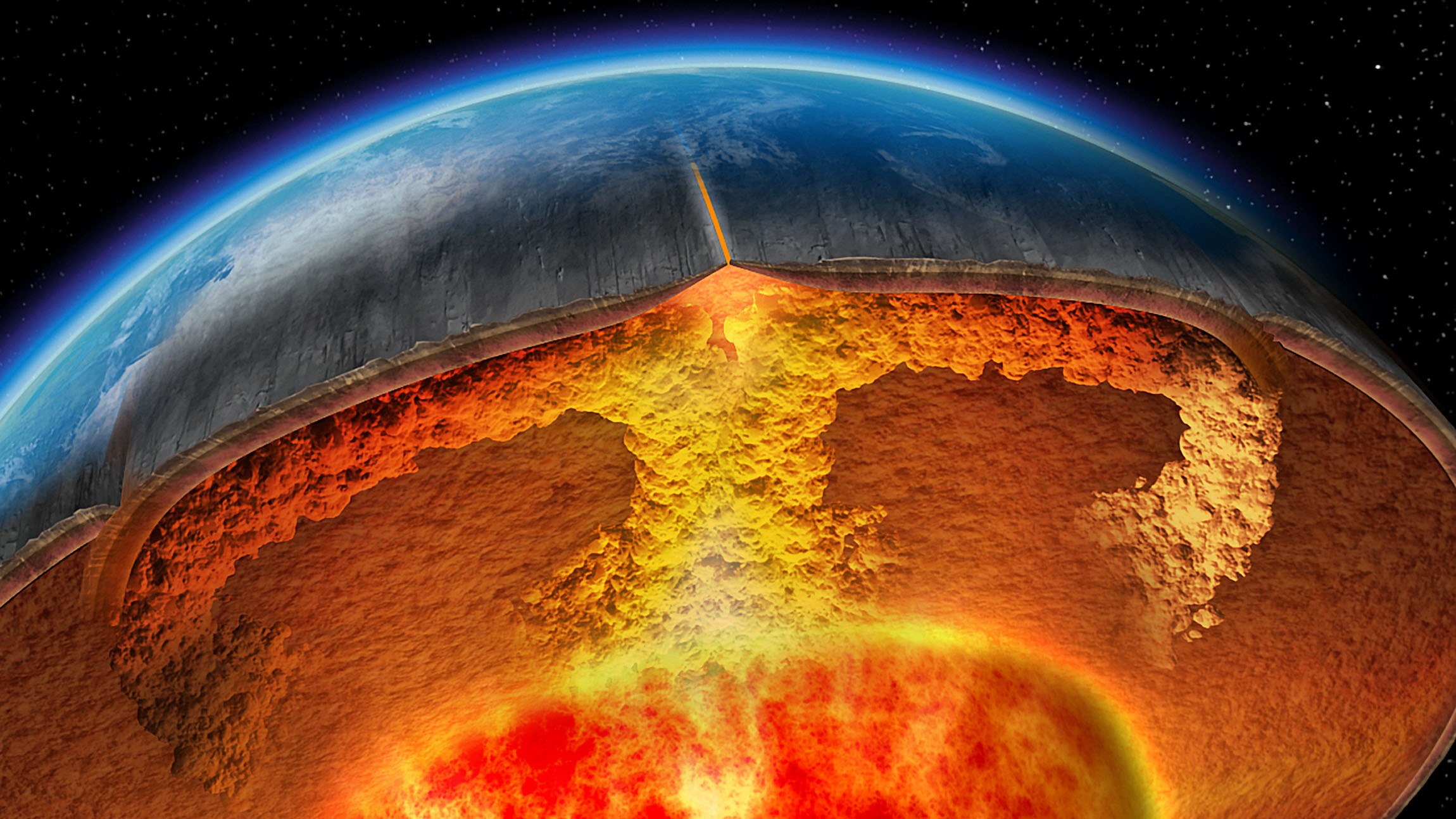24.09.2020
Earth’s deep mantle gives clues to oxygen signatures in ocean and atmosphere 1–2 billion years ago
Free atmospheric oxygen influences geological materials and their elements on the Earth's surface by particular oxidation processes. Such oxidation signatures can be transferred by erosion from the continents into deep-sea deposits. Through plate tectonic processes, these deposits, together with their special oxidation signatures, can then even be transported into the Earth's mantle and remain stored there for millions and billions of years. Upon modern volcanic activity, these old surface components are returned to the surface. Such “recycled” signatures from the Earth’s deep interior can provide unique information on the past global ocean and atmospheric conditions.
A team of geochemists from the University of Tübingen and University of Paris has now succeeded in detecting traces of earlier surface conditions by studying unique lavas that erupted in the Atlantic Ocean. High-precision isotope measurements of the volatile element selenium on these volcanic rocks showed that ancient surface oxidation signatures were transferred into the deep mantle where they survived for billions of years. Within the framework of most recent models, the results further imply that our atmosphere ~1–2 billion years ago probably contained much more oxygen than widely assumed in the scientific community. In addition, these newly constrained selenium isotope systematics highlight how exactly volatile elements in the Earth’s atmosphere, continents and mantle are linked by a large geological cycle.
Isotope Geochemistry Research Group/University of Tübingen
The study is part of the project O2RIGIN "From the origin of Earth’s volatiles to atmospheric oxygenation", directed by PD Dr. Stephan König and financed by the European Research Council (https://cordis.europa.eu/project/id/636808/de).
Original Publication: Yierpan A, König S, Labidi J, Schoenberg R (2020): Recycled selenium in hot spot–influenced lavas records ocean-atmosphere oxygenation. Science Advances Vol. 6, no. 39, eabb6179 https://advances.sciencemag.org/content/6/39/eabb6179
Contact:
Dr. Aierken Yierpan
+49-(0)7071-29-74991
aierken.yierpanspam prevention@uni-tuebingen.de
PD Dr. Stephan König
49-(0)7071-29-73076
stephan.koenigspam prevention@uni-tuebingen.de

